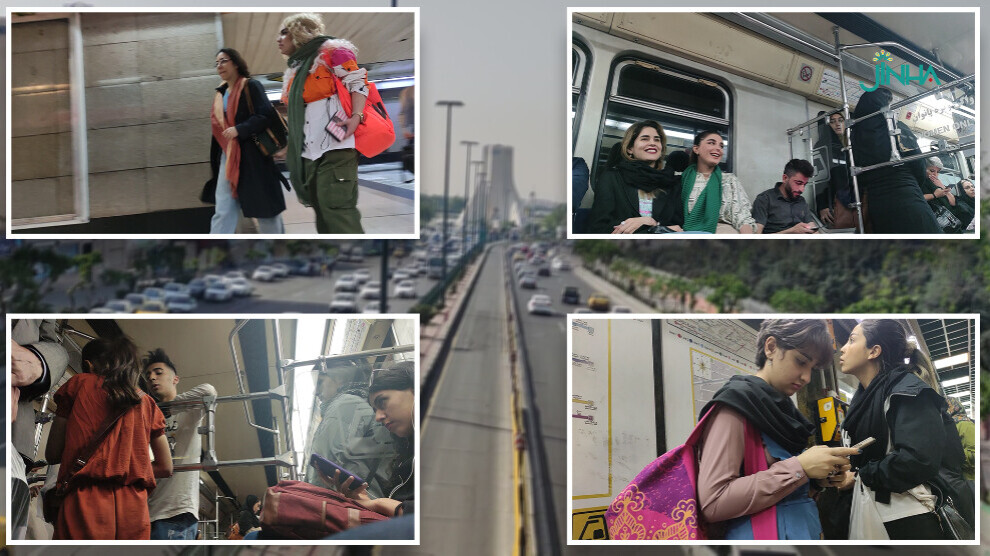Civil disobedience of women entering to Tehran metro without hijab
Despite gender discrimination and the mandatory hijab law, women do not wear hijab on the streets, in public spaces and on the metro in Tehran.

Tehran-Despite all the threats of the authorities of the Islamic Republic of Iran, the subway CCTV cameras to identify women not wearing hijab, Iranian women have not worn hijab in protest of the country’s mandatory hijab law since the “Women, Life, Freedom” protests that began in September 2022.
In Iran, the mandatory hijab is a symbol of gender discrimination and not complying with it is an open opposition to the Islamic Republic of Iran. The mandatory hijab law marginalizes women in society, destroys women's identity and a crackdown on women’s rights. It also deprives women of participating in important social and economic activities according to the roles imposed on them by the patriarchal mentality.
NuJINHA reporter in Iran interviewed a number of women in Tehran regarding the mandatory hijab law.
Women do not want to comply with the mandatory hijab law anymore’
Mahsa, a student living in Tehran said, “Jina Mahsa Amini was killed by morality police. Since she was killed, the ‘Women, Life, Freedom’ protests have continued in Iran. Women have taken to the streets without wearing hijab to protest the killing of Jina Mahsa Amini and protest the mandatory hijab law. They remove their hijab in front of the security forces. Everyone knows that if security forces arrest a woman for not wearing a hijab, a protest will be held immediately. Now, most women do not wear hijab on the streets, in public spaces and on the metro in Tehran. Women do not want to comply with the mandatory hijab law anymore.”
Ghazaleh, a young woman and a private sector employee, said, “In the workplace, none of the female employees wear hijab. One day, when I was returning home from work we, as women, began to chant slogans in the metro. When we were about to leave the metro, the security forces arrived and shouted at us. They attacked us and a bullet hit my head.”
Asal, a young woman working in a restaurant, said, “Most of the women who come to the restaurant do not wear hijab. Now, the authorities have put pressure on the restaurant owners to ban women not wearing hijab to enter restaurants. They have installed cameras in streets to detect women not complying with the mandatory hijab. They threaten restaurant owners to close their restaurant if they allow women not wearing hijab to enter their restaurants. Once, security forces came to our restaurant. They asked for a bribe from the restaurant owner. They said they would seal our restaurant if the restaurant owner did not give a bribe. They left our restaurant after secretly taking money from the restaurant owner.”
